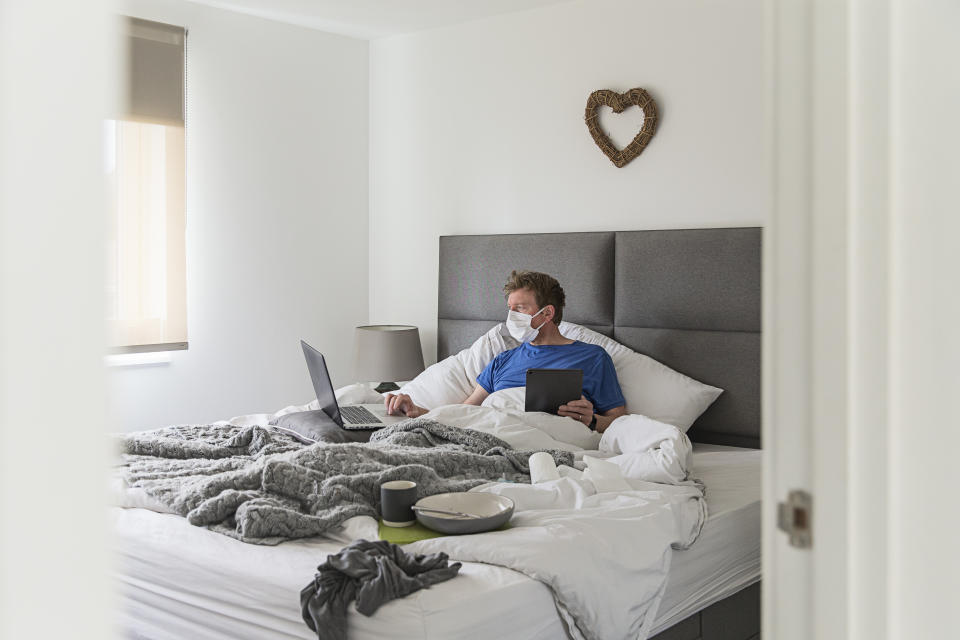How to create boundaries when working from home

If you are new to working from home, what might feel like a bit of a “working holiday” can easily end up having you work harder and longer than you ever did when you travelled into the office.
Maintaining healthy boundaries around your hours, workload, physical space and social life can ensure you are productive and happy with your new working arrangement.
Also read: Working from home amid the coronavirus: What are the tax implications?
Also read: How to not go crazy while working from quarantine
It’s easy to blur work boundaries to the point that you end up being “on” all day and night. As a solopreneur this has been one of my biggest learnings. If I’m not careful, I can end up working 12-16 hours a day, because I get on a roll, and/or lose track of time.
Or there’s the flip side, which is I finish a major project or milestone in a couple of hours and then feel guilty because I’m not working a whole 8 hour day!
Even when you worked at the office, it’s likely you were only really productive for around 3 hours per day.
Yep. You read that right. 3 hours. I’m sure there are probably days where you were more (or less) productive, and a study done in the UK found that in an eight-hour day, the average worker is only productive for two hours and 53 minutes.
5 of 8 hours at work aren’t spent working
So what are they doing in instead of working? The most popular unproductive activities listed were:
Checking social media – 44 minutes (spent doing this during working day)
Reading news websites – 1 hour 5 minutes
Discussing out of work activities with colleagues – 40 minutes
Making hot drinks – 17 minutes
Smoking breaks – 23 minutes
Text/instant messaging – 14 minutes
Eating snacks – 8 minutes
Making food in office– 7 minutes
Making calls to partner/ friends – 18 minutes
Searching for new jobs- 26 minutes
These things add up!
This is particularly good news for those of you who are new to working from home. It’s easy to feel like you’re not “doing” enough when you don’t have to go into an office. Yet this research suggests that if you’re productive for just three hours a day, you’re outputting the same amount as someone in the office for eight hours!
This is not an excuse, however to “slack off”. The best way to manage this is to be clear on what you want to achieve in the day. Work according to outcomes, not the clock. You’ll be surprised at what you can achieve when you don’t have the distractions listed above.

Physical boundaries are important
Decide where you are going to do your “work” and stick with that. If the spare bedroom, the home office, the kitchen table, or the kitchen bench is where you do your work, then don’t vary it on a day to day basis.
It becomes harder to separate “work time” from “home time” if you are moving your laptop from room to room, or place to place.
You don’t want to “contaminate” your resting place. If you like to veg out on the couch and binge watch your latest Netflix show in your down time, don’t contaminate that space by now making it a workspace. You will find that you will be unsuccessful at both. You won’t work well, and you won’t relax well.
Working from bed and staying in your PJ’s all day might feel like fun, however a bed is not a desk. Bad posture aside, again you are contaminating a place of rest with work.
Draw social boundaries too
Finally, friends and family are going to need some boundaries. Just because you are at home doesn't mean you are available.
Drop-ins, lengthy chat’s on the phone, coffee dates can eat up a lot of time, and before you know it, you have lost some valuable working time.
Like physical boundaries, there are work and social boundaries that need to be maintained.
So, get up, get dressed and get to work!
Donna McGeorge is a speaker, author and mentor who improves workplace effectiveness while challenging thinking on leadership, productivity and virtual work. She is the author of 3 books, ‘Making Work Work’, ‘The 25-Minute Meeting: Half the Time, Double the Impact’ and ‘The First 2 Hours: Making Better Use of Your Most Valuable Time’.
Make your money work with Yahoo Finance’s daily newsletter. Sign up here and stay on top of the latest money, news and tech news.
Follow Yahoo Finance Australia on Facebook, Twitter, Instagram and LinkedIn.

 Yahoo Finance
Yahoo Finance 